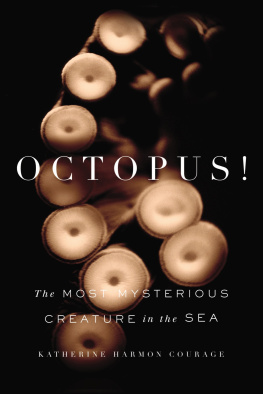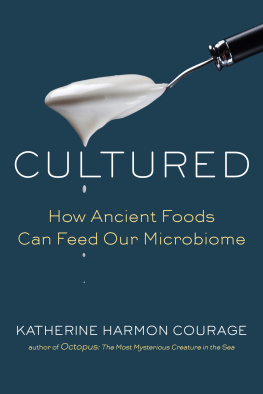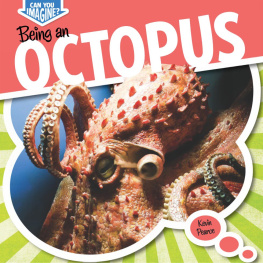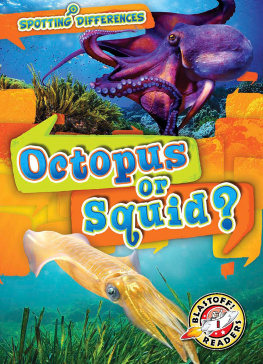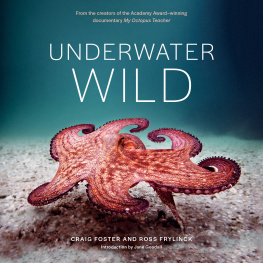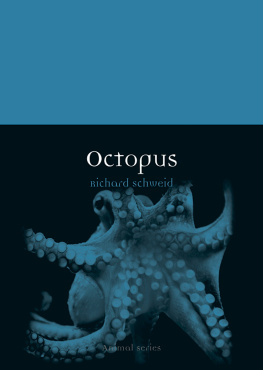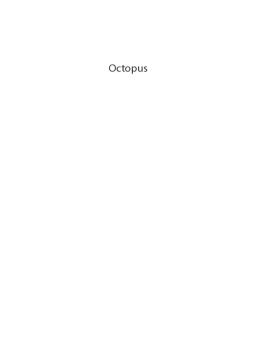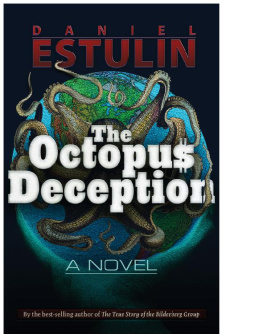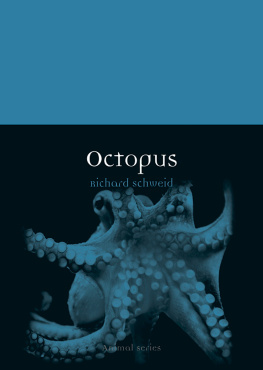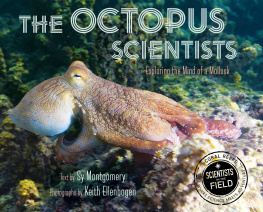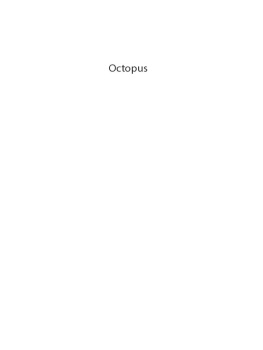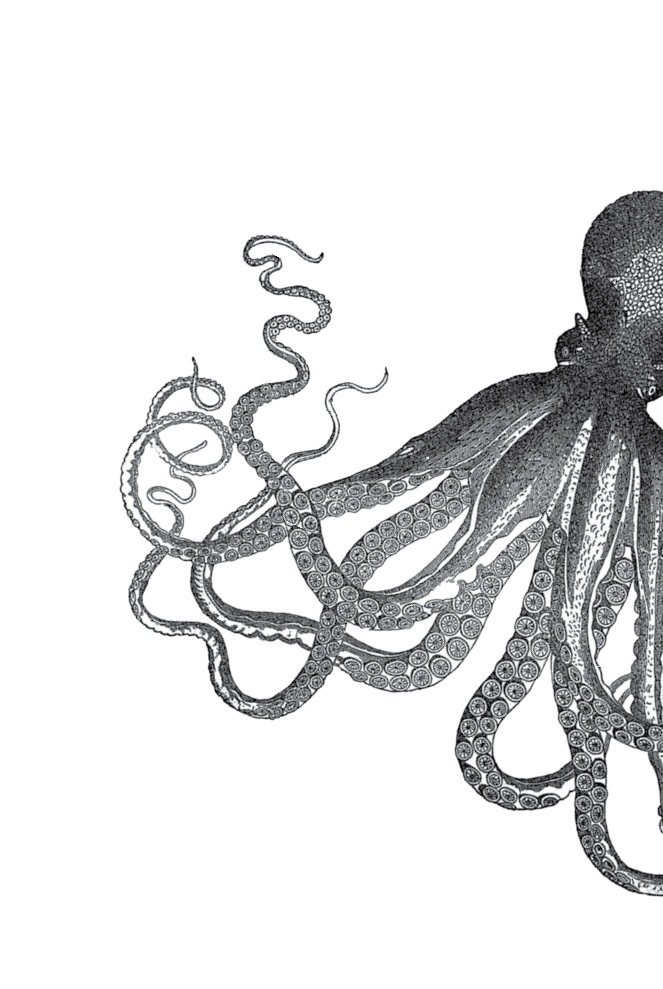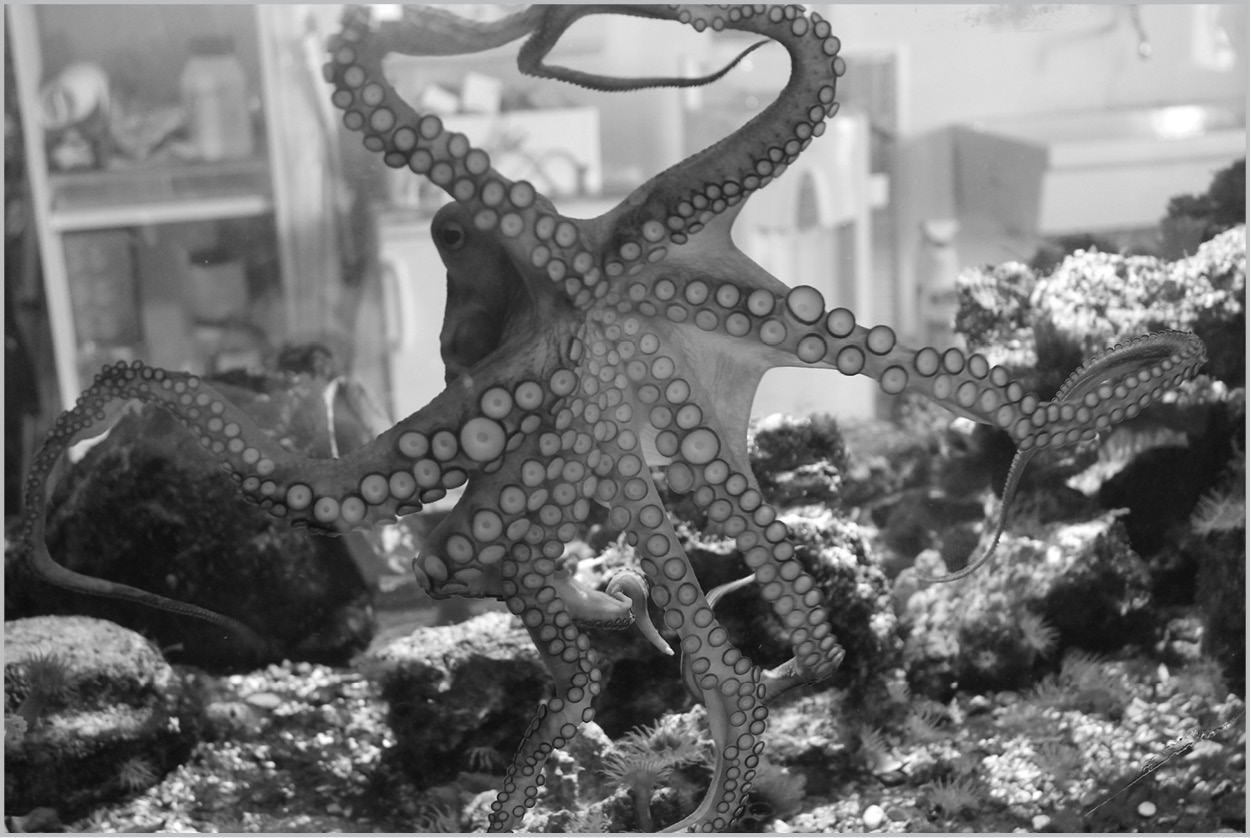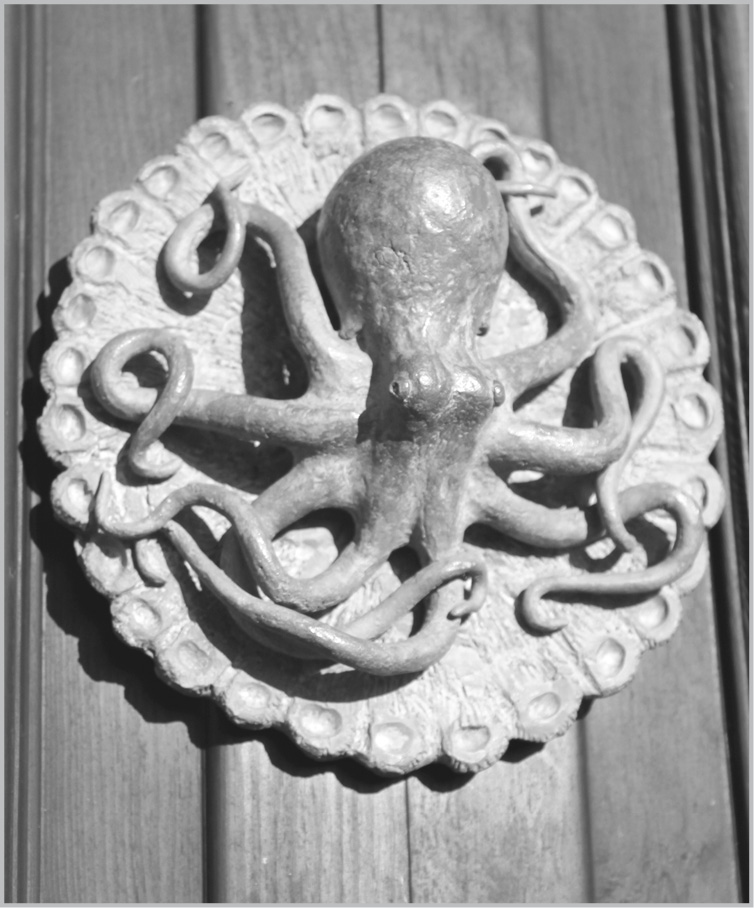OCTOPUS!
The Most Mysterious Creature in the Sea
KATHERINE HARMON COURAGE
CURRENT
CURRENT
Published by the Penguin Group
Penguin Group (USA) LLC
375 Hudson Street
New York, New York 10014

USA | Canada | UK | Ireland | Australia | New Zealand | India | South Africa | China
penguin.com
A Penguin Random House Company
First published by Current, a member of Penguin Group (USA) LLC, 2013
Copyright 2013 by Katherine Harmon Courage
Penguin supports copyright. Copyright fuels creativity, encourages diverse voices, promotes free speech, and creates a vibrant culture. Thank you for buying an authorized edition of this book and for complying with copyright laws by not reproducing, scanning, or distributing any part of it in any form without permission. You are supporting writers and allowing Penguin to continue to publish books for every reader.
ISBN 978-0-698-13767-7
Version_1
T o my grandfath er
TED ROGERS
the most amazing (human) specimen Ive met
Does the complete understanding of a natural phenomenon strip away its miraculous qualities? It is certainly a risk. But it should at least maintain all of its poetry, for poetry subverts reason and is never dulled by repetition. Besides, a few gaps in our knowledge will always allow for a joyous confusion of the mysterious, the unknown, and the miraculous.
Jean Painlev, filmmaker, Mysteries and Miracles of Nature, Vu, 1931
CONTENTS
Andreino the octopus muse from the Laschi biorobotics lab in Livorno, Italy.
(Katherine Harmon Courage )
Introduction
T he octopus is a tough beast to grasp. With eight arms, three hearts, camouflaging skin, and a disarmingly sentient look in its eyes, how could it appear anything but utterly alien? Yet the octopus has been beguiling humans for as long as we have been catching it: millennia. Cultures have created octopus-centric creation myths, art, and, of course, cuisine. For all of our ancient fascination and the millions of dollars funneled into modern research, we still have not been able to get a handle on these slippery creatures.
But lets not let that stop us. From a fishing boat on the high Spanish seas to a robotics lab in Italy to an octopus distributor in Brooklyn, we will discover what makes the octopus so fascinatingand what it can teach us. (And yes, for good measure, well also taste a few of them.) So sit back and relaxfix yourself an octopuss garden cocktail if you likeas we plunge into the realm of the strong, slick, smart, and occasionally delicious octopus.
The ancient Greeks christened the animal oktpous, which means, unimaginativelyand slightly inaccuratelyeight foot (the correct label for the appendages is actually arms). And while were clearing the nomenclatorial air, thanks to this Greek origin, the preferred common plural is octopusesnot octopi, octopodes, or even octopussies.
Whatever one chooses to call them, there is no doubt that these animals have a strange hold on our imaginations. The stories of monstrous, multiarmed mythical krakens surface periodically throughout literature, legend, art, and film. According to Hawaiian mythology, the octopus is the only living holdover from the worlds previous incarnations. Per local Gilbert Islands legend, the octopus god Na Kika is responsible for having pushed the islands up from the bottom of the sea. The strange octopus-dragon-human beast Cthulhu, created by writer H. P. Lovecraft, has appeared in popular culture for nearly a century and was even featured on a few episodes of the television show South Park. Pliny the Elders Naturalis Historia, from the first century, describes a giant octopus that weighed in excess of six hundred pounds and took fish from villagers. And a picturesque Italian town called Tellaro, on the coast in Liguria, has erected homages to the giant octopus that reputedly saved the village by ringing the church tower bell to warn of an impending invasion.
Octopus door adornment in Tellaro, Italy.
(Katherine Harmon Courage)
In the mid-twentieth century, sporting divers vied to wrest some of the biggest octopuses from the ocean in organized octopus wrestling competitions. More recently, contestants on a Japanese game show tackled a tremendous (if sluggish) specimen in a large tank. The octopus has served as inspiration for at least a couple of comic book supervillains who use their intellect and sometimes their additional arms to further their nefarious plots. Octopuses have crept into real-life research labs, helping scientists to better understand the nervous system, build camouflaging materials, and construct soft-bodied robots.
Today, anyone with an Internet connection can view any number of public aquarium octopus webcams and see what the animals are up to right at this very moment. Octopus lovers can also join the online Cephalopod Tea Party or the discussion at the Everything Octopus blog. True devotees log on to the TONMO (The Octopus News Magazine Online) community and attend the related semiannual TONMOCON (the TONMO Convention). The octopus has even been the muse for an entire short story anthology (Suction Cup Dreams, which includes titles such as Vulgaris, A Stranger Returns from an Unexpected Trip to the South China Sea, and Three-Hearted). Its likeness crops up in tattoos, as upholstery patterns, on neckties, and even in erotic arta testament to its odd and far-reaching allure. The singer Fiona Apple demonstrated, in a 2012 music video, that an octopus can even be fashionable head wear. Internet videos showing them strangling sharks or lurching about on land (both feats they are capable of) have made these animals offbeat stars online.
Humans have been catching octopuses for thousands of years. We currently drag in more than fifty thousand tons of these muscly animals annually. People have caught them with lures, spears, pot traps, nets, and their bare hands. Culinary strategies are even more varied. You can order them boiled as a Spanish appetizer, baked into a Maltese pizza, pressed and sliced into Italian octopus soppressata, grilled as a Greek entre, raw as Japanese sushi, or even half alive in Korean cuisine. You can also pick them up brined, dried, cured, salted, or frozen. In the narrow streets of some Greek islands, you can literally run right into fresh, locally caught octopuses hanging out on lines to dry in the sun. Although the arms are usually the main dining attraction, the ink, which the animals employ for defense, is still used today for sauces and food coloring.
But many researchers profess to love the octopus not for its meater, armsbut for its brains. They are interesting because they are the smartest invertebrate, says biologist Roland Anderson, who worked with octopuses for more than forty years at the Seattle Aquarium. Okay, so theyre smarter than your average garden worm, big deal. But when you consider that more than 95 percent of the creatures on earth are invertebrates, theyre facing an awful lot of competition, which comes from a lot of different evolutionary avenues. And octopuses are, after all, mollusks, as are oysters, which, Anderson points out, dont do much and arent terribly intelligent. Octopuses do so much more, he says. They are a predator, they go out to find food, they build dens and they modify them, they use tools, they use spatial navigation, they have play behavior, they recognize individual people. So... octopuses are pretty smart. And, yes, some of them even make gardens.

